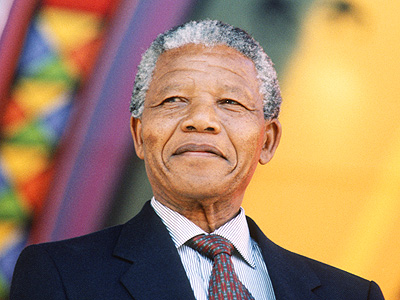Just as South African politician and human-rights leader Nelson Mandela passed away last week, global trade diplomats finished talks in Bali that could pump $1 trillion annually into the economies of developing countries.
Perhaps the spirit of Mandela moved them. At least it’s nice to think he somehow helped bring Doha back from the dead, reviving the moribund Doha Round of world trade talks.
Mandela of course is best known for the causes of racial justice and reconciliation. He spent more than a quarter century in prison and emerged from captivity as a hero.
Free trade—or the lack of it—made his story possible. In the 1980s, the nations of the world imposed economic sanctions on South Africa’s white government. Without this hardball approach, apartheid might still be in place and Mandela might have died in confinement.
So Mandela understood the liberating power of buying and selling goods and services across borders.
The 159 members of the World Trade Organization understand it as well, or at least they do in theory. After years of arguing without result, they finally appear to have struck a deal that will make a difference.
Experts call it a “trade facilitation” agreement, which means that its implementation will reduce red tape at ports and border crossings. A representative of the Airforwarders Association, which represents air-freight companies, told Bloomberg News that importing items into a few countries can require filling out as many as 30 forms, some of them available only on paper (as opposed to electronically).
The Bali deal should improve this sorry state of affairs. Making the rules of customs easier and more transparent also should cut down on corruption.
Taken together, these reforms will reduce trade’s transaction costs, which, according to some estimates, impose the functional equivalent of a 10-percent tariff.
The Peterson Institute estimates that better trade facilitation will boost worldwide commerce by as much as $1 trillion per year. Developing countries will benefit the most, especially in sub-Saharan Africa, because they have the most to gain from modernizing their customs procedures.
Even so, President Obama hailed the WTO’s accord as good news for American small businesses, which can have a hard time deciphering complex trade rules and navigating antiquated systems. U.S. firms that specialize in logistics may see an uptick in their revenues, as countries work to enact reforms.
Given the original high hopes of the Doha Round, this is an exceedingly minor deal. The Washington Post called it “modest by any measure,” and that’s a pretty good assessment.
Yet a little bit of something is better than a whole lot of nothing—and up until now, the Doha Round has been a spectacular failure.
That’s why so many participants hailed the Bali agreement less for what it delivers as for what it symbolizes.
“For a small package, this is actually a big deal,” said U.S. Trade Representative Michael Froman, in the Wall Street Journal. “I think it demonstrates that the WTO can work and hopefully will lead to other, maybe even bigger deals going forward.”
Roberto Azevedo, who became director-general of the WTO three months ago, echoed this idea: “This package is not an end. It’s a beginning,” he said. “As a consequence of our progress here, we’ll now be able to move forward on the other areas of our work that have been stalled for so long.”
That remains to be seen. The Bali talks nearly flopped, ending in small-bore success only because the United States and India agreed to put off a confrontation over India’s agricultural subsidies, which desperately need an overhaul.
Moreover, the greatest advances in global trade are taking place outside the WTO’s purview, in regional agreements such as the Trans-Pacific Partnership (TPP), which would encourage trade along the Pacific Rim. For the United States, TPP and a possible agreement with the European Union are the biggest prizes.
Yet it’s good to see Doha spring back to life, at least in a small way and for a short time.
Dean Kleckner is Chairman Emeritus for Truth About Trade & Technology (www.truthabouttrade.org). Follow us: @TruthAboutTrade on Twitter | Truth About Trade & Technology on Facebook.

